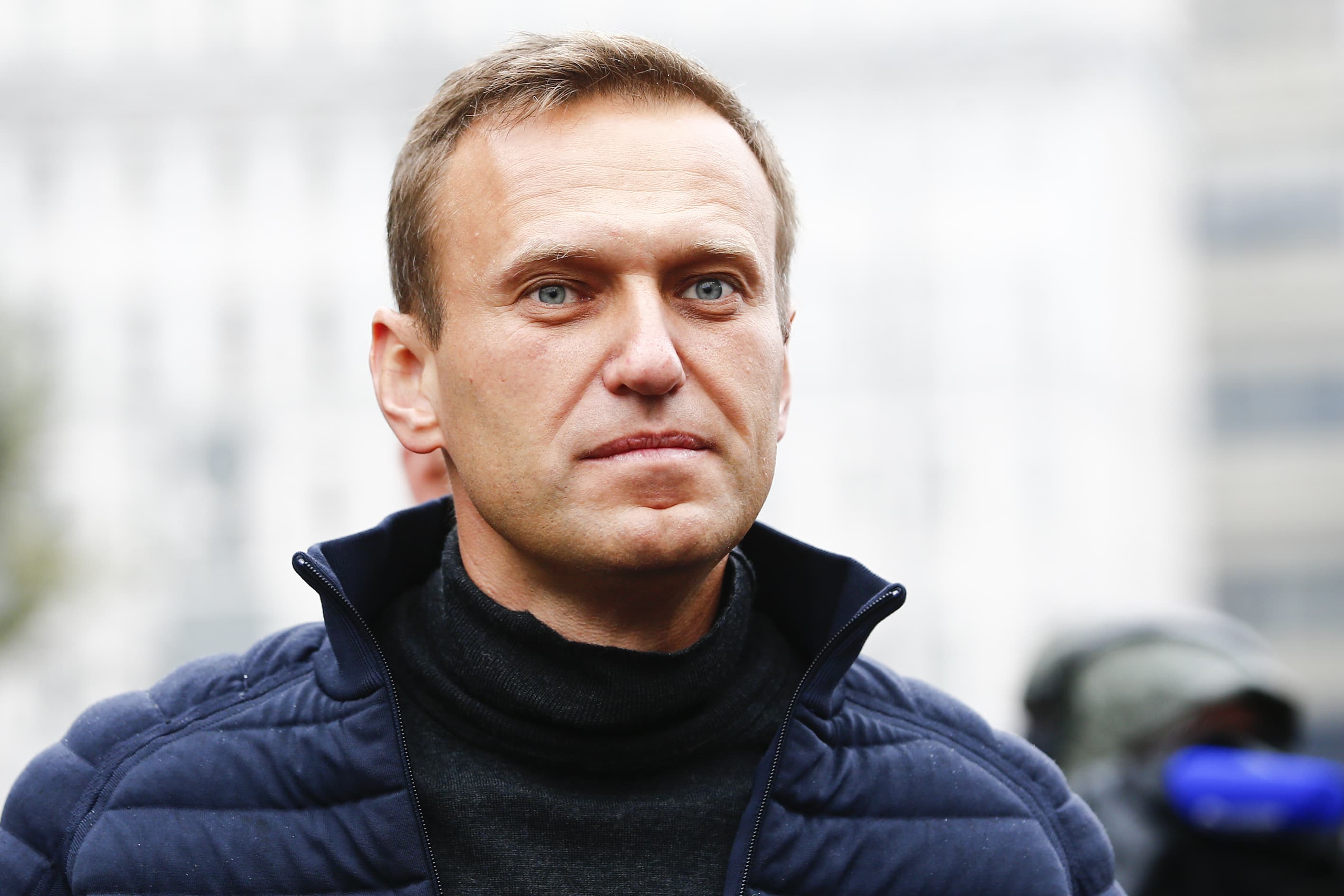
A file photo dated September 29, 2019 shows Russian opposition leader Alexei Navalny during a rally in support of political prisoners in Prospekt Sakharova Street in Moscow, Russia. Alexei Navalny is unconscious in hospital after allegedly being poisoned according to his press secretary.
Sefa Karacan | Anadolu Agency via Getty Images
Germany’s government on Wednesday confirmed via hospital tests that Russian dissident Alexei Navalny was poisoned by a nerve agent belonging to the Novichok family.
Toxicology test results from a German military lab produced results showing “unequivocal evidence” that Navalny was poisoned with Novichok, a German government spokesperson said.
“It is a startling event that Alexei Navalny was the victim of an attack with a chemical nerve agent in Russia. The federal government condemns this attack in the strongest possible terms,” the spokesperson said in a translated statement.
Navalny’s wife, Yulia Navalnaya, and the attending doctors were said to have been informed of the test results.
The 44-year-old political activist and the country’s most vocal critic of Russian President Vladimir Putin was airlifted to Germany for treatment on Aug. 22 shortly after falling ill.
Russian doctors treating him in Siberia before his medical evacuation denied that he had been poisoned, and blamed his comatose state on a metabolic disease caused by low blood sugar. Navalny’s allies say he became ill after something was put in his tea at an airport cafe.
A Kremlin spokesperson said Berlin did not directly inform Moscow that Germany believes Navalny was poisoned with Novichok. Russia’s foreign ministry has so far withheld a further response, saying only: “We are still waiting for a response to the request from the Prosecutor General’s office.”
Novichok was used in the poisoning of Russian ex-spy and U.K. double agent Sergei Skripal and his daughter Yulia in England in 2018. The U.K. government blamed the attack on Russia, while Moscow has repeatedly denied any involvement.
Germany’s government spokesperson said the country would also contact the Organization for the Prohibition of Chemical Weapons.
Alexey Navalny, Russian opposition leader, center, and his wife Yulia, right, walk with demonstrators during a rally in Moscow, Russia, on Saturday, Feb. 29, 2019. Photographer:
Andrey Rudakov | Bloomberg via Getty Images
The affirmation by Germany’s medical specialists “very clearly points at Russian state responsibility,” Carl Bildt, co-chair of the European Council on Foreign Relations and Sweden’s former prime minister and foreign minister, wrote on Twitter.
Navalny is Russia’s most prominent opposition figure, and has led popular protests against Putin’s government leading to his arrest and frequent targeting and has been consistently barred from running in local elections.
In July last year, he was hospitalized from a detention center, where he was held on administrative arrest after organizing peaceful demonstrations. Authorities said Navalny had suffered an allergic reaction, although the politician himself believes he was poisoned.
Navalny, like many other lawmakers in Russia, has frequently been detained by authorities and harassed by pro-Kremlin groups. In 2017, he was attacked by several men as they threw anti-septic in his face, damaging one eye.
Navalny had campaigned to challenge the president in the 2018 election, but he was blocked from standing for office.




